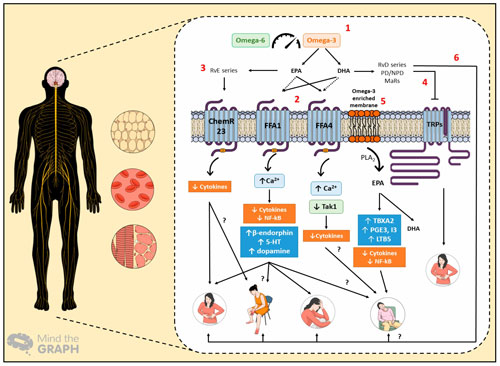THE research, published in the journal Cell Metabolism, lays the groundwork for possible future cancer treatments.
The senior author of the study was Prof. Olivier Feron, research director at the Faculty of Pharmacy and Biomedical Sciences and the Faculty of Medicine, at the Université Catholique de Louvain, in Belgium.
Anticancer ome-ga-3?
As the Office of Dietary Supp-lementsTrusted Source explains, omega-3 fatty acids play an important role in maintaining health. They contribute to the functioning of various parts of the body.
Researchers have also linked omega-3 fatty acids to anticancer effects.
Dietary interventions against cancer are a growing area of research. Much has focused on how to restrict certain nutrients that cancer cells depend on, with the aim of inhibiting the growth of tumors.
For example, scientists have exploredTrusted Source the effectiveness of calorie restriction, and ketogenic diets in particular, on the inhibition of tumors in mice.
However, as Dr. Feron and his co-authors point out:
“Applications of these approaches in cancer patients, including via the ketogenic diet that makes fat-generating ketone bodies to spare healthy organs, face obvious issues, including weight loss, associated fatigue, and weakness, together with practical difficulties in implementing these diets in an everyday cancer patient’s life.”
Instead of restricting dietary intake, researchers looking at omega-3 fatty acids as an anticancer intervention have focused on supplementation.
For example, researchers have associated higher omega-3 intake with lower colorectal cancer death rates.
Knowledge is power. Get our free daily newsletter. Dig deeper into the health topics you care about most. Subscribe to our facts-first newsletter today.
Mechanism for protection?
The researchers behind the present study explored what potential biological mechanisms may account for the link between omega-3 fatty acids and tumor inhibition.
The team has previously shown that an acidic microenvironment in tumors encourages cells to use lipids as an energy source rather than glucose, which enables the tumor cells to multiply and spread throughout the body.










